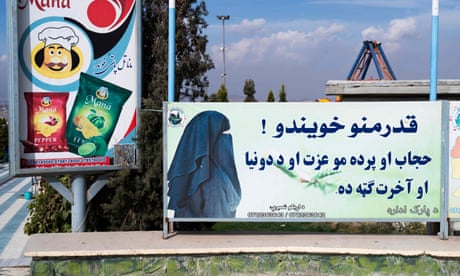Martin Griffiths, the head of UN humanitarian operations, is to fly to Kabul to try to resolve the crisis caused by the Taliban’s surprise decision to ban women working for NGO aid groups in the country.
The move came as Ramiz Alakbarov, the UN humanitarian coordinator for Afghanistan, said in New York that aid programmes were already being compromised.

However, he said that on the basis of his discussions with Taliban cabinet ministers the ban was not being implemented uniformly in every region, adding that constructive meetings had been held with the minister of health. Alakbarov said it was now going to be necessary for service providers to see how the promises played out on the ground.
He stressed that “aid cannot be conditioned. You cannot condition providing food or health assistance to a starving or dying person. You cannot exclude one gender or any particular category of people.
“Assistance will not be delivered in a place and space where operational independence impartiality or any other operating principles of the UN are compromised.”
Alakbarov stressed that the UN wanted a dialogue with the Taliban and he believed they did respond to pressure, adding he believed younger Taliban members did not necessarily support the ban.
He also said the UN was willing to discuss Taliban concerns about wearing the hijab, but that does not require women to not work or take part in the economic activity of the country. It would be a very last resort to prevent UN aid going to Afghanistan, Alakbarov said.
He added that with the largest footprint in the country, the UN had a responsibility to use its convening power to find a solution for NGOs, many of whom deliver UN programmes.
In a sign of the flux, Médecins Sans Frontières said it was not suspending its activities, unlike some NGOs.
It said: “For the time being, all of MSF’s activities have been maintained as our female colleagues continue to work unhindered in the health facilities managed by MSF and the Ministry of Health. This must not change: prohibiting women from working would effectively prevent women and girls from accessing health care.”
“Excluding women from the workforce is against every principle of humanity and medical ethics to which health professionals subscribe. If women are prevented from working in health facilities, and if women can only be treated by women, then it will be virtually impossible for them to access health care,” said Filipe Ribeiro, the MSF country director. “As a result, no health care provider, including MSF, will be able to deliver medical services in Afghanistan.”
 Afghanistan Peace Campaign
Afghanistan Peace Campaign